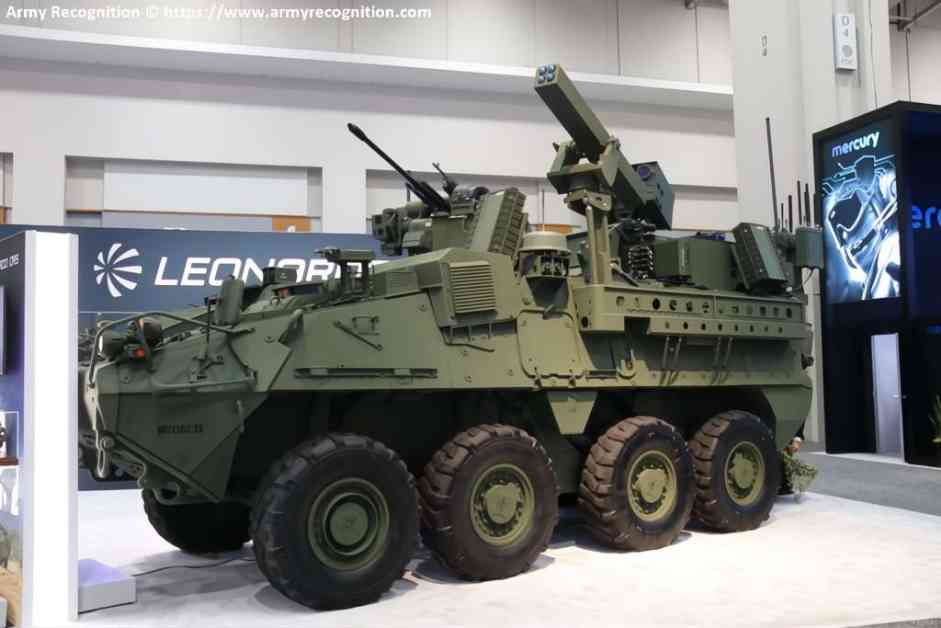The new variant of the Stryker 8×8 Infantry Combat Vehicle (ICV), known as the Counter-Unmanned Aircraft System (C-UAS) Directed Energy (DE) Stryker, was recently revealed by Leonardo DRS and BlueHalo at the AUSA 2024 exhibition. This version is equipped with a powerful laser-directed energy weapon, laser-guided rockets, a 30mm automatic cannon, and various radars and sensors for enhanced capabilities in neutralizing Group 1-3 UAS targets.
During a live-fire demonstration in Socorro, New Mexico, the C-UAS DE Stryker showcased its effectiveness in countering drones with the use of BlueHalo’s Locust Laser Weapon System. This 26kW laser system, designed for mobility and rapid deployment, demonstrated its ability to engage drones weighing up to 600 kilograms, reaching altitudes of 5,486 meters, and speeds up to 463 kilometers per hour.
The Locust system operates within 15 minutes of deployment and is controlled by a single operator through a network-based interface. Its modular design allows for quick replacement of subassemblies, ensuring minimal downtime. The system’s scalable output power range of 2 to 20 kW, combined with a pulse-Doppler, electronically scanned radar for 360-degree coverage, makes it a formidable defense against aerial threats.
In addition to the laser weapon, the C-UAS DE Stryker is equipped with two primary kinetic effectors: the R400S remote weapon station armed with a 30mm chain gun and a 70mm laser-guided rocket launcher. These systems, along with the Next-Gen Multi-Mission Hemispheric Radars (nMHR) and a 360° camera, provide long-range detection and continuous tracking capabilities for effective targeting of both air and ground threats.
The collaborative effort of Leonardo DRS, BlueHalo, and other industry partners in developing this prototype in just eight months showcases the rapid development timeline of the system. The integration of the C-UAS DE Stryker with the U.S. Army’s Forward Area Air Defense Command and Control network ensures compatibility with existing air defense systems, enhancing soldiers’ operational capabilities in contested environments.
Directed energy weapons like the Locust system offer advantages in reducing dependence on conventional ammunition and providing cost-effective engagement solutions compared to traditional interceptors. While these systems have logistical constraints in terms of cooling and recharging between engagements, they align with the U.S. Army’s goal of minimizing reliance on expendable ammunition for enhanced defense capabilities.
Despite operational challenges faced by mobile high-powered systems, the C-UAS DE Stryker represents a significant advancement in mobile directed energy technology for counter-drone roles. As part of the ongoing M-SHORAD program, future increments plan to incorporate new counter-drone capabilities to further strengthen the Army’s air defense capabilities in various operational environments.
